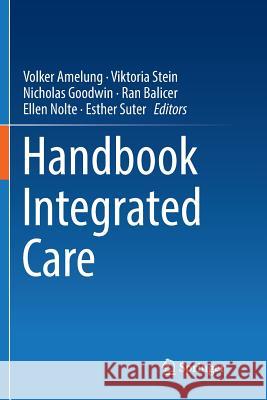Handbook Integrated Care » książka
topmenu
Handbook Integrated Care
ISBN-13: 9783319858265 / Angielski / Miękka / 2018 / 595 str.
Kategorie:
Kategorie BISAC:
Wydawca:
Springer
Język:
Angielski
ISBN-13:
9783319858265
Rok wydania:
2018
Wydanie:
Softcover Repri
Ilość stron:
595
Waga:
0.83 kg
Wymiary:
23.39 x 15.6 x 3.12
Oprawa:
Miękka
Wolumenów:
01
Dodatkowe informacje:
Wydanie ilustrowane











